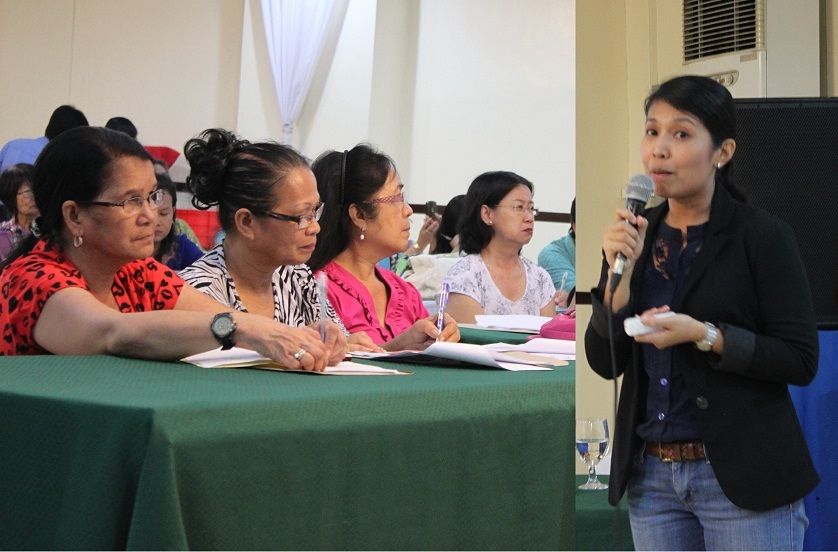A new strategy of providing foster care for children is being pushed by DSWD6 for implementation in Local Government Units.
Dubbed, “Aruga at Kalinga sa mga Bata sa Barangay or Foster Care in the Barangay,” the approach, which falls under the Social Technology projects of the department, aims to establish a pool of foster parents in a barangay that provides a planned and substitute foster care to abandoned, neglected and other children in need of temporary parental care.
During the Social Welfare and Development (SWD) Forum conducted yesterday, Social Welfare Officer Josephine Arang of DSWD Central Office said that bringing Children in Need of Special Protection (CNSP) in foster homes rather than residential care facilities has advantages.

“Government facility is more costly, has limited resources and lacks trained staff. Children in institution tend to have difficulty forming and maintaining relationships throughout their lives; the younger a child is and the longer the stay in residential care, the more likely that the child is to suffer long-term psychological difficulties;
Children in institutional care tend to have difficulty reintegrating into society; and overcrowding in residential centers and institutions indicate greater problems for abandoned children,” Arang said.
On the other hand, she said that foster care is one of the most nurturing alternative placement for children in need of temporary substitute family care. While there are residential facilities available, a child grows best in a family where he or she is given individualized care and nurturing and all his or her needs are met.
Records showed that Western Visayas recorded 40 children placed under foster care last year. This was under regular foster care placement which has long been implemented by DSWD.
Aside from this, the Regional Rehabilitation Center for Youth (RRCY), a facility for Children in Conflict with the Law (CICL), had a total of 71 residents. On the other hand, Home for Girls, a center for abused girls, had 41 cases.
Aruga, however, has modifications if compared with the regular foster care program.
Under the Aruga , implementation is barangay-based with a pool of foster parents, at least 10 in number, to provide a planned substitute parental care for children who may either come from the centers and institutions or referred/rescued from the community.
Also, with this strategy, location of foster parents is in one geographical area, requirements for interested parents to foster are simplified, foster parents have a support group since they are living near to each other; there is active involvement of Local Government Units, there are more opportunities for capability building activities in parenting, foster children can interact with one another since they live in one community, there are more opportunities for children to experience a family life environment and they will have support and supervision of the barangay.
Aruga Implementation
The LGU through its City or Municipal Social Welfare and Development Officer shall identify the target barangay for the project implementation based on the following criteria:
• With functional Barangay Council for the Protection of Children (BCPC)
• Child friendly, such that it offers a safe and healthy environment, wholesome neighborhood, has basic amenities vital for child’s protection and development such as clean water, health, education and recreational facilities.
The LGU Social worker shall conduct a thorough study and assessment of all foster parent applicants and their families to determine their motivation and to evaluate whether they fully meet the requirements, specifically, the following:
• 25 years old to 60 years old, legally married, single or widow
• Mentally and physically fit and free from contagious and infectious diseases to cope with the added stress of caring for a child with special needs including his/her family members
• With healthy and harmonious relationship with each family member
• With good moral character and emotional maturity (no derogatory records in the community)
• Involve and participate in a socio-civic activities in the community (optional)
The prospective adoptive parents shall be requested to submit the following:
• Barangay clearance
• Medical clearance
• Marriage contract, death certificate
• Birth certificate of biological children
• Written consent of biological children of prospective foster parents 10 years old above
• Three character references
• Three recent family picture
• Any proof of income (Income tax return, certificate of employment)./dswd6/May Rago-Castillo
